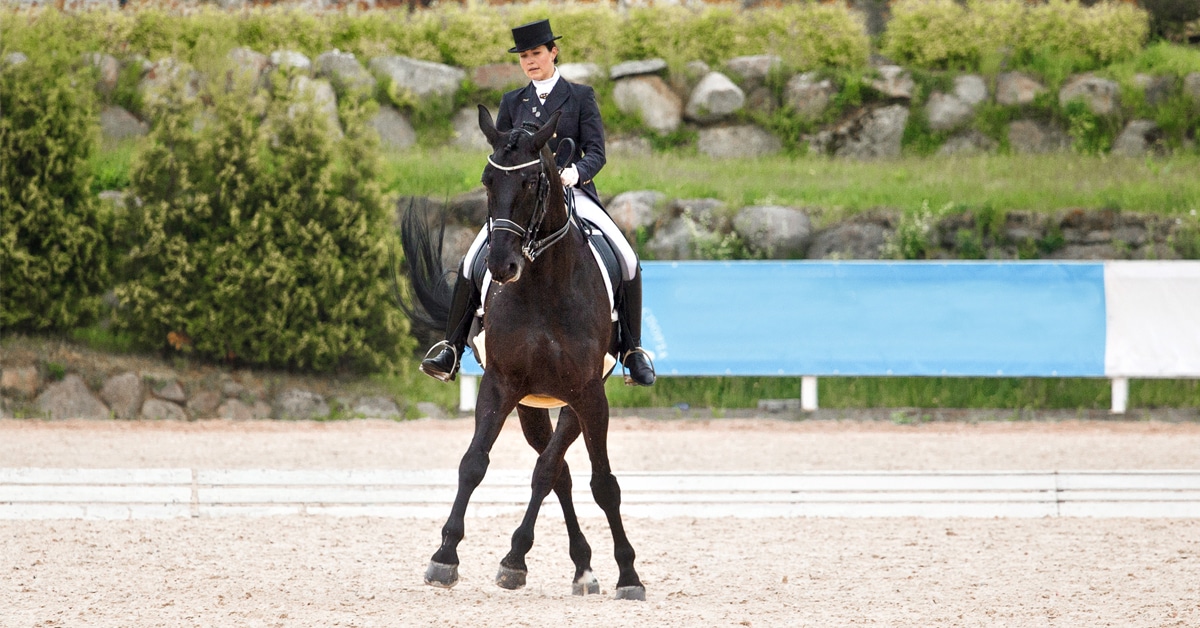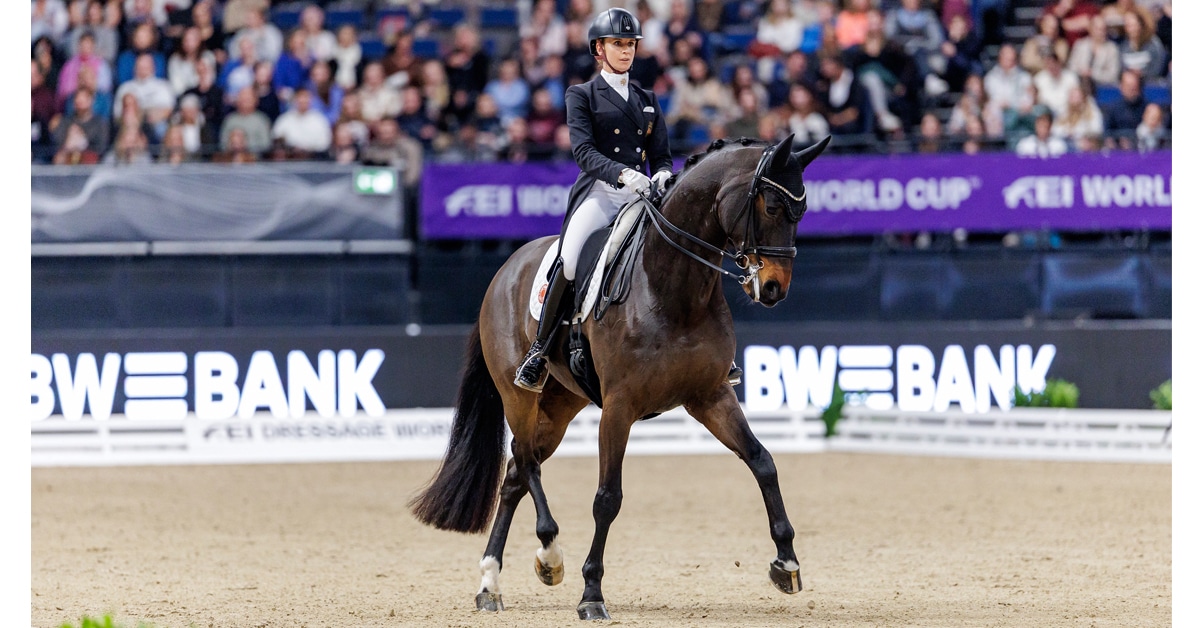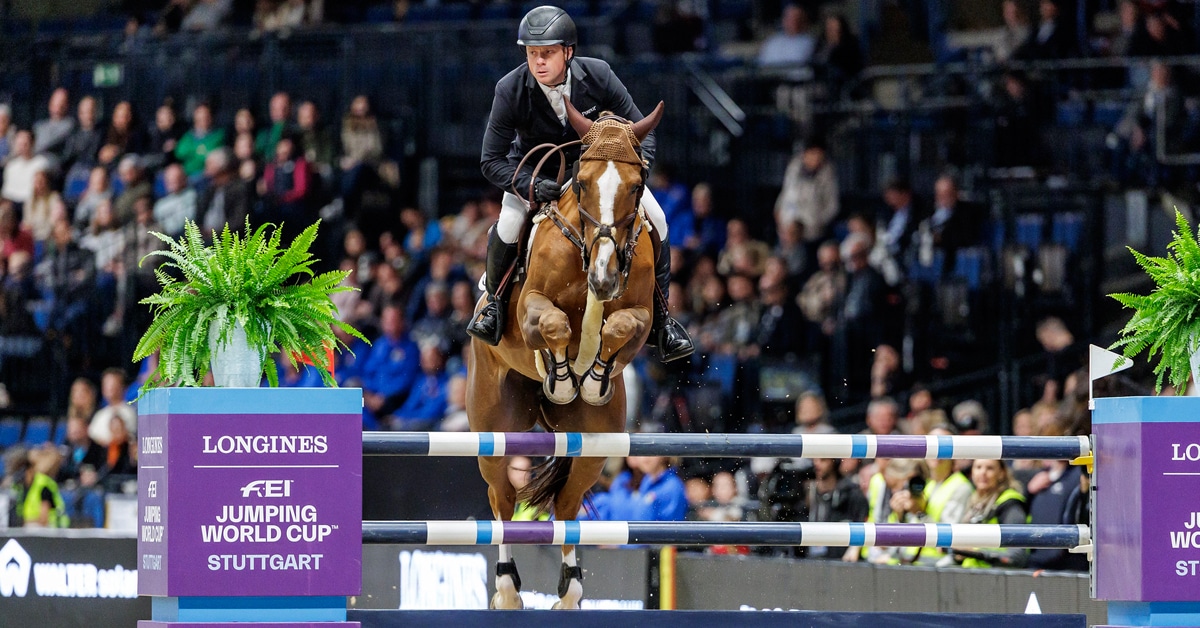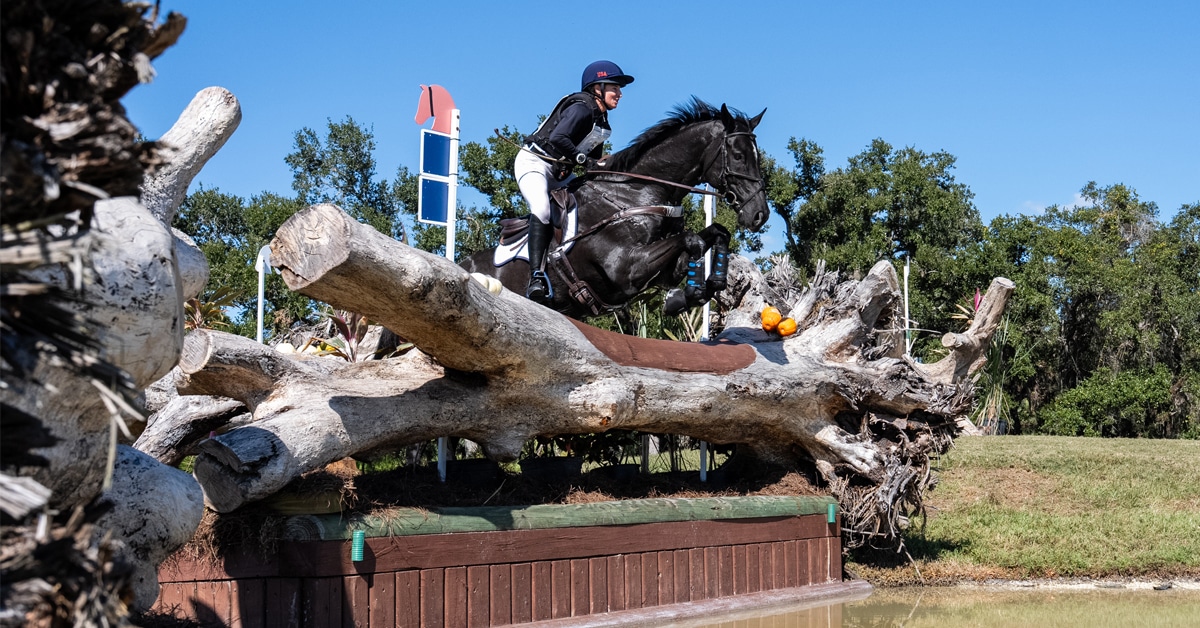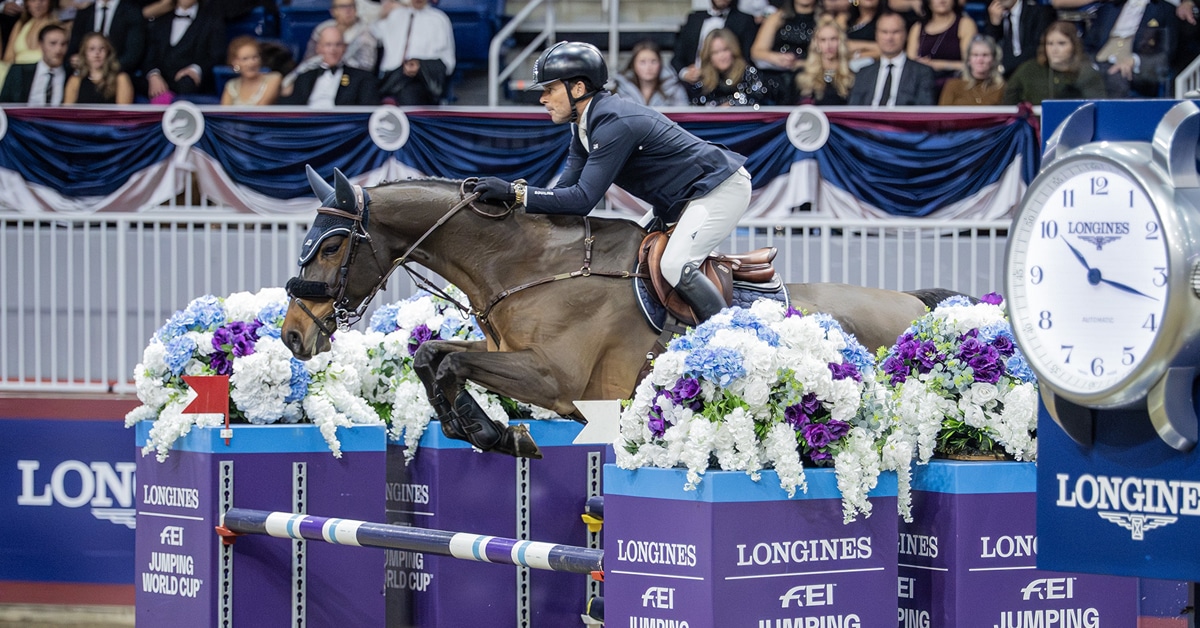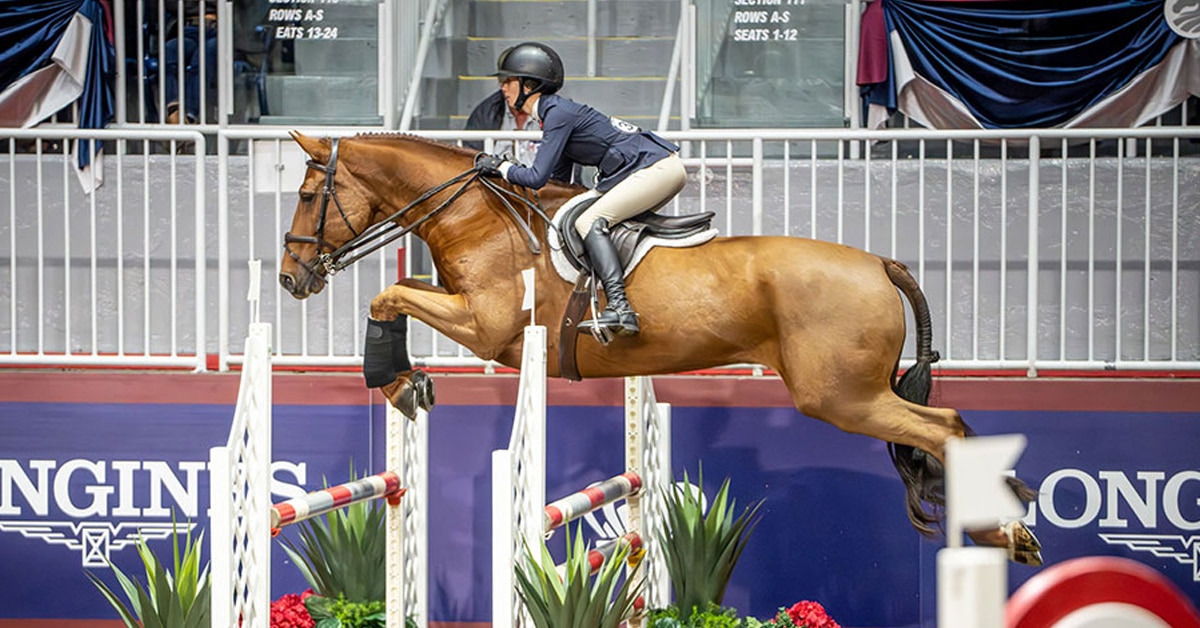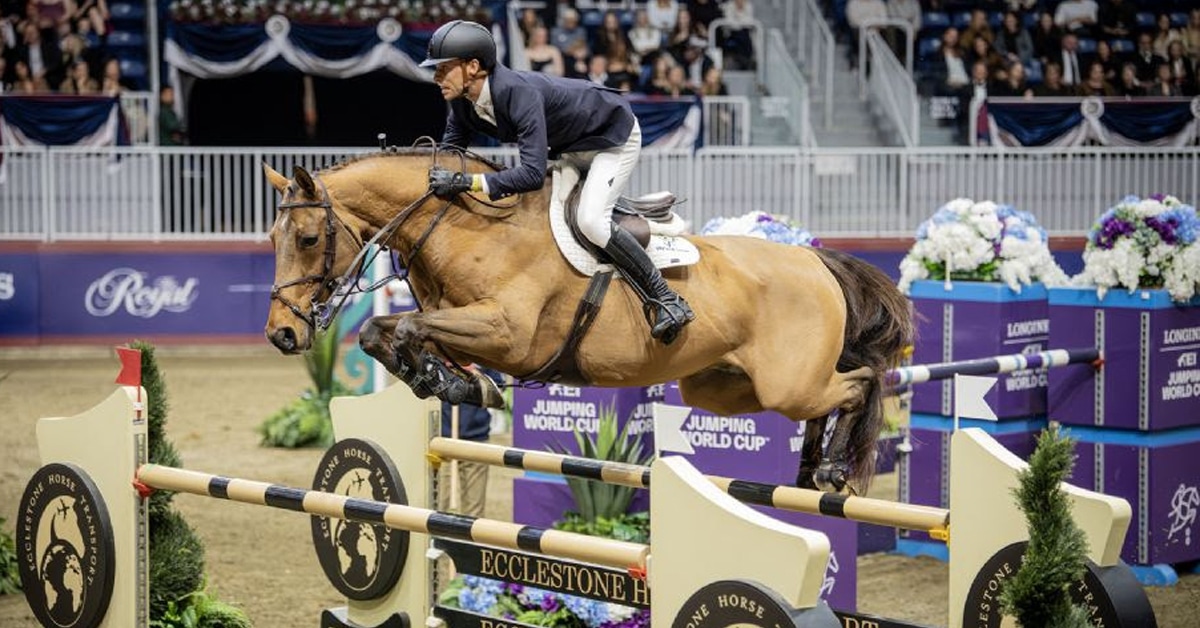Two endurance riders whose horses tested positive to Trometamol have been suspended for six months each – a reduced sanction for a banned substance because Trometamol is being re-classified as a controlled medication.
The FEI Tribunal also noted that neither could have known their borrowed horses – supplied by Al Wathba Stables in Abu Dhabi – had ingested Trometamol. It was not listed as an ingredient of a product called “Endurance,” administered by the stables’ veterinary assistant before their respective races.
One rider is top Argentinian Daiana Chopita, who rode two horses both testing positive in Abu Dhabi last winter. JC Cahuel placed third in a CEI* 100km race on December 9, 2017, and HLP Gadafi third in the CEI** 120km on December 23rd.
The other rider, Waad Nadim Bou Moghlbay, won the December 23rd race for riding JLB Noche, also testing positive to Trametamol. Miss Moghlbay is a Lebanese national competing under UAE administration.
The six-month suspensions were credited against provisional suspensions already served, meaning both may compete again immediately. They were also fined 3,000 Swiss francs ($3,950.)
The sanctions were determined through the agreed settlement procedure, with a limited amount of evidence provided in the FEI Tribunal notice. However, the notice does show that in March, lawyers lobbied for the Trametamol to be downgraded to a controlled medication. The FEI bureau agreed – for reasons not divulged. This takes effect from January 2019. Hence, applying the lex mitior principle, the incidents were handled as if already a lesser offence.
Tribunal also agreed that neither riders nor staff at Al Wathba Stables could have known the banned substance was present. “Endurance” is manufactured in the US by Equimed whose owner Ray Vaughan Thomas stated Trametamol was historically included, to act as a “buffer,” but omitted from the label because it was an inactive ingredient.
Equimed told Horse-Canada this product no longer contains Trametamol.
Meanwhile, Abdulla Mahmood Abdulla Darban, an Iranian national, has been suspended 12 months in a separate endurance racing offence. The FEI took Darban’s prior positive into consideration when imposing the more severe sanction.
Darban’s ride Asiatica des Pins tested positive to Triamcinolone Acetonide at a CEI* 100km ride in Doha, Qatar, on March 17th. The horse’s owner-trainer admitted authorising the administration of the corticosteroid 19 days before the race, because of the horse’s bilateral carpitis and distal tarsitis, and insisted the rider was blameless. However, the FEI underlined that the “strict liability” of the rider applied.
The vet thought withdrawal time was 16 days. The FEI commented: “It was a well-established fact among veterinarians that when a joint was injected, there was always a risk of leakage and it needed to be taken into consideration when deciding the withdrawal time for a specific drug. It was also a well-established fact that there was a difference in detection time for a substance depending on the route of administration, i.e., intra-articular, intravenous, intra-muscular, or subcutaneous.
“Veterinarians providing services to sports horses should be able to inject a joint correctly and accurately, as well as to convey to the client, the potential risks of the procedure.”
“The Tribunal holds that the Person Responsible cannot be discharged from this duty – his personal duty as a rider – even when not having been in charge of preparing the horse, and even when not having had any connection to the horse prior to the event.” It added that Darban should have learned from his previous offence and was “highly negligent.”
Horse with fatal fracture tested positive to Tiludronic acid
In the past three years, three UAE-owned endurance horses fatally fractured in FEI rides went on to test positive to prohibited substances.
One of these cases came before Tribunal recently, resulting in a six-month suspension for its rider, a UAE-based Indian national Manohar Singh Mohammed Singh. Araco’s Roman was positive to Tiludronic acid, a substance normally used in treatment of navicular and bone spavin.
Araco’s Roman suffered an open fracture of the right hind in the first loop of the HH Sheikh Mohammed Al Maltoum Cup, a 160km race in Dubai on January 7th. He was sedated and transported to the clinic where samples were taken prior to euthanasia. It is obligatory under FEI rules to sample in-competition fatalities.
Neither rider nor owner provided any explanation for its presence. The owner told Tribunal he did not know his horse was sampled, and disputed whether it could have been taken from another horse. Tribunal rejected that argument; the rider was present at the sampling.
Singh is now ineligible till March 2019. The FEI decision noted he could have accepted an administrative sanction (fast-track fine of 1500 Swiss francs and disqualification but no suspension) but he elected for a Tribunal hearing, despite being aware of the likelihood of tougher penalty.
More News
